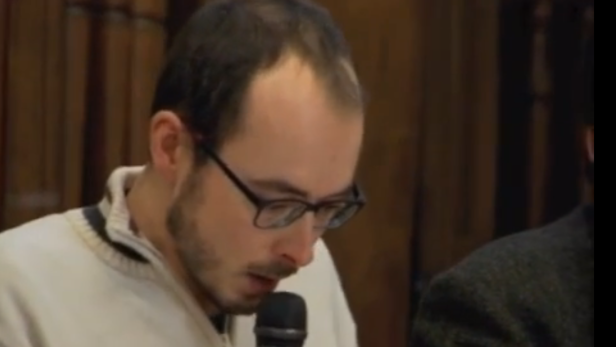Kommentar: "EU trade bill threatens media freedom"
A new EU directive being discussed in the European parliament is threatening investigative journalism throughout Europe.
The main objective of the trade secret directive to protect the theft of secret business information like patents, innovative technologies or recipes.
But NGOs and journalists’ associations warn that the legislation could endanger freedom of expression and information.
The main reason for concern is an unreasonably broad definition of "trade secrets". Companies could sue anyone who "unlawfully acquires, uses or discloses" secret business information.
Trade unions say that even information about future mergers or redundancies could fall under the scope of the directive.
Safeguards for freedom of expression and information are considered to be inadequate for journalists or whistleblowers as they would have to prove that a disclosure of a "trade secret" lies in the public interest.
In addition, journalists would have to check first if an informer has acquired information legally. Research on informers could become more important than investigating the facts.
Both restrictions would make revelations about any wrong behaviour by a company more difficult than they are now.
The Luxembourg authorities recently charged whistleblower Antoine Deltour, a former clerk at Price Waterhouse Coopers, who unveiled the so called LuxLeaks scandal.
Multinational corporations like Amazon, Fiat, Disney paid only a low tax-rate in Luxembourg for profits made in the whole of the EU.
French journalist Edouard Perrin, who reported on it, was also charged.
The trade secrets could directive could lead to a wave of accusations by companies against media organisations.
The OSCE’s representative for media freedom, Dunja Mijatovic, told the Austrian news magazine, Profil, that the EU directive could have a "serious impact on media freedom".
"Some of the provisions do not sufficiently prevent the introduction of excessive restrictions to freedom of expression and freedom of the media by EU member states", Mijatovic warned.
"More particularly the text does not define the legitimate exercise of the right to freedom of expression and information and does not provide a clear notion of public interest in order to properly protect investigative journalism."
The Association of European Journalists (AEJ) appealed to the EU institutions to include more specific safeguards in the new piece of legislation to prevent the principle of freedom of information being undermined.
Under the proposed directive, whistleblowers can use undisclosed information to reveal misconduct or wrongdoing, but only if "the alleged acquisition, use or disclosure of the trade secret was necessary for such revelation and that the respondent acted in the public interest".
But determining whether disclosure was necessary can often only be assessed afterwards. In addition, it remains unclear whether some types of information (like plans to lay off a large number of employees) can be defined as "misconduct" or "wrongdoing".
This creates legal uncertainty for journalists, particularly those who specialise in economic investigations.
French centre-right MEP Constance Le Grip, who is rapporteur for the directive, argues the directive leaves enough safeguards for journalists.
Le Grip said that the directive "doesn’t go against civil liberties" and strikes a balance "between the need to protect secrets and the need for knowledge and information to circulate".
But it is also true companies massive lobbyied the EU institutions on the matter.
By contrast, NGOs warned that the new law will limit consumer information. The protection of trade secrets argument could be used by companies to hide information on whether there are health- or environment-damaging substances in their products.
The directive will be put to vote in the European Parliament's committee on legal affairs on Tuesday (16 June). Then EU ministers will scrutinise it against. It is may possibly be the last chance to defend attacks on the freedom of journalism in Europe.
Otmar Lahodynsky is a journalist at Austrian weekly Profil and president of the Association of European Journalists

